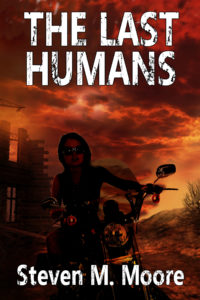Breaking the timeline…
You’ve seen it in movies: Some action scene or a murder starts things off in a mystery or thriller film, or a heated verbal battle between two lovers that makes you wonder why they’re together in a rom-com. Then on the screen some words like “two weeks earlier” or “a year ago” appear. The film industry didn’t event this—it’s been used in books for a long time.
Such scenes are the “hook” that writing tutors talk about ad infinitum. They make the moviegoer or reader ask, “Why is this happening?” Depending on the quality of the hook, the viewer or reader wants to find out the answer to that question because the hook is completely lacking it. The answer comes later in the story and breaks the timeline when it does.
The use of a hook plus subsequent break in the timeline has been used for a long time, but not too long. Christie didn’t use it. She often built up to murder and then Miss Marple or Hercule Poirot would step in and figure out who did the foul deed. Same for H. Rider Haggard’s adventure novels that would be called thrillers nowadays. His Alan Quatermain stories, for example, unlike their Indiana Jones descendants, built up the story from the beginning. Indy’s hooks often have nothing to do with the main story, although that snake phobia in a book might appear as a prologue.
That technique is effective too. A murder occurred long ago and became a cold case, only to be solved years later. A thriller can begin with an event from the main character’s childhood or far past. There has to be a connection to the “present day,” of course, and it still has to be an effective hook that’s there for a reason. But the break in the timeline between that hook and “present day” could be many years…or eons in the case of sci-fi and fantasy.
This can be confusing to readers like the first hook plus timeline break mentioned, so writers have to clarify things. Words like “two weeks later” or “a year later” are now appropriate. In both cases, the writer wants the reader to say, “Why is this occurring?” or something similar, and not “This is confusing, so to hell with it!”
And switching into the new timeline, that is, returning to the book’s present, shouldn’t derail the train either. The prose flow should seem natural and inevitable. The reader must be smoothly carried from the hook to the new point in time. Writers can use phrases like I mentioned, isolated at the beginning of the chapter dealing with the present, after the chapter heading, or they can simply appear at the beginning of the first sentence in the chapter. The publisher or author might have a preference in how this is handled, but it must be handled.
The hook doesn’t have to be accompanied by a break in the timeline, of course. That’s the least confusing for a reader, but it might not be as effective. Can the hook be a prologue? Maybe, but I prefer it to be part of the first chapter, unless the events are far in the past, when your choice becomes a coin toss (warning: many readers and reviewers don’t like prologues).
I probably have examples of all these techniques in my novels. They can also be used to make short fiction more interesting. The basic idea is to grab the reader with the initial prose, maybe even the first few words. “Call me Ishmael” doesn’t satisfy readers nowadays (it has never satisfied me). The lesson I have learned during my many years of writing is the one I’m trying to convey: Storytelling exists in both space and time, and the reader must always place the reader in the proper location for both.
Honing our writing skills is a continuous process.
***

Comments are always welcome.
The Last Humans. Did you miss this? Ex-USN and forensics diver for the LA County Sheriff’s Department Penny Castro surfaces from a dive for a body only to find death all around her. Follow her adventures—her struggles to survive and create an adopted family–in this post-apocalyptic thriller brought to you by Black Opal Books. Available in print and ebook format at Amazon or the publisher’s website, and in ebook format at Smashwords and all their affiliated retailers (iBooks, B&N, Kobo, etc.) and lenders (Overdrive, etc.). Also available at your favorite bookstore (if they don’t have it, ask for it.)
Around the world and to the stars! In libris libertas!
